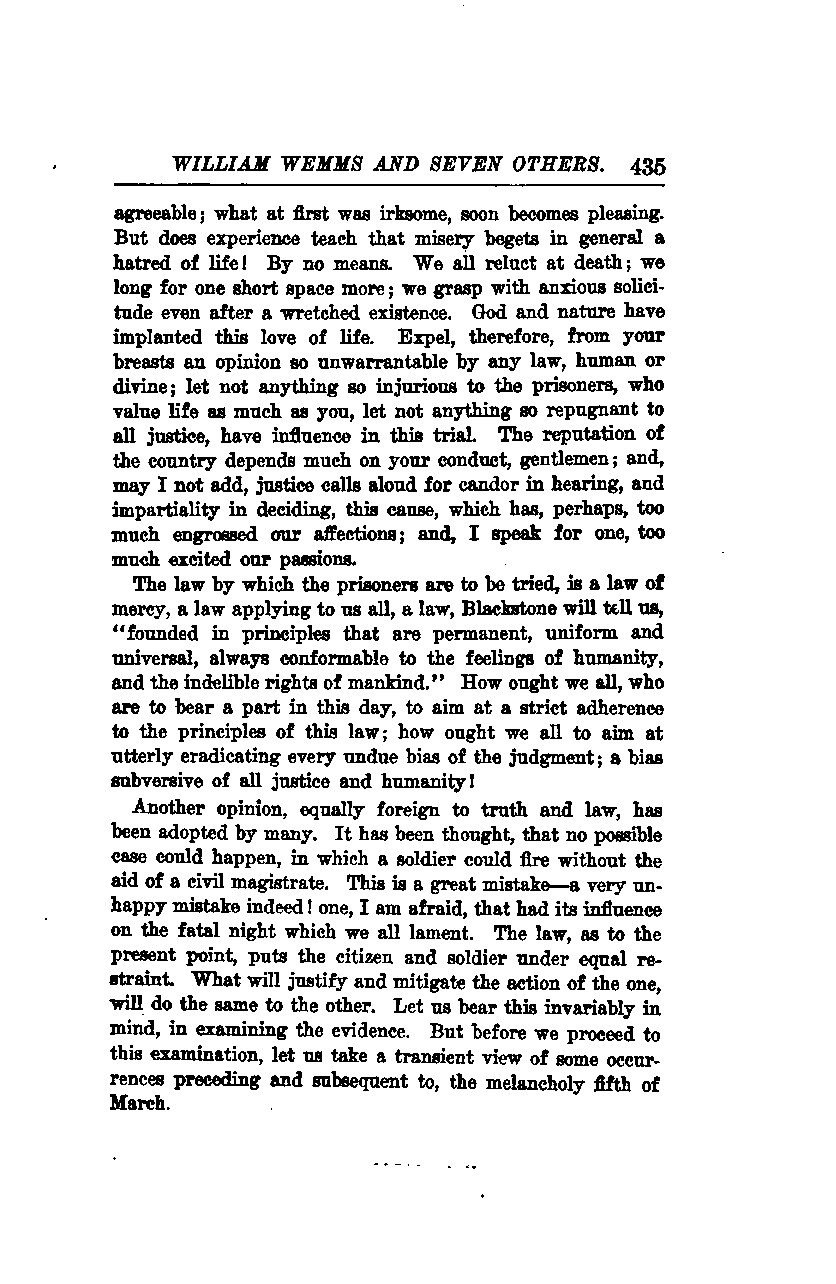
Here is the translated text as follows:
WILLIAM WEMMS AND SEVEN OTHERS
What is at first irksome soon becomes pleasing. But does experience teach that misery begets in general a hatred of life? By no means. We all recoil at death; we long for one short space more; we grasp with anxious solicitude even after a wretched existence. God and nature have implanted this love of life. Expel, therefore, from your breasts an opinion so unwarranted by any law, human or divine. Let not anything so injurious to the prisoners, who value life as much as you do, and let not anything so repugnant to all justice, have influence in this trial. The reputation of the country depends much on your conduct, gentlemen; and, may I not add, justice calls aloud for candor in hearing, and impartiality in deciding, this cause, which has, perhaps, too much engrossed our affections; and, I speak for one, too much excited our passions.
The law by which the prisoners are to be tried is a law of mercy, a law applying to us all. Blackstone will tell us that it is "founded in principles that are permanent, uniform, and universal, always conformable to the feelings of humanity, and the indelible rights of mankind." How ought we all, who are to bear a part in this day, to aim at a strict adherence to the principles of this law; how ought we all to aim at utterly eradicating every undue bias of the judgment, a bias subversive of all justice and humanity!
Another opinion, equally foreign to truth and law, has been adopted by many. It has been thought that no possible case could happen in which a soldier could fire without the aid of a civil magistrate. This is a great mistake—a very unhappy mistake indeed! One, I am afraid, that had its influence on the fatal night which we all lament. The law, as to the present point, puts the citizen and soldier under equal restraint. What will justify and mitigate the action of the one will do the same for the other. Let us bear this invariably in mind when examining the evidence. But before we proceed to this examination, let us take a transient view of some occurrences preceding and subsequent to the melancholy fifth of March.